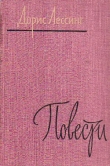
Текст книги "Accidental Creatures"
Автор книги: Anne Harris
Жанр:
Научная фантастика
сообщить о нарушении
Текущая страница: 3 (всего у книги 19 страниц)
"Okay," she said. Helix still hadn't gotten a very good look at her face, just a quick blur of small pointed features and something peculiar about the eyes. "Okay, no doctors. I've got a car. It’s not far, I parked it under the overpass on Monroe. I'll go get it, and I'll take you to see someone. Not a doctor, a friend of mine. Hang on." and she took one of Helix's hands, and placed it over the wound in the small of her back. "Keep that there, you don't want to lose any more blood. I'll be right back." And she was, with a rag which she tied around Helix's waist. "I shouldn't be moving you at all, but I can’t get that boat of a car down this alley. Here, give me your arms." and she wrapped Helix's right arms around her shoulder, and with her arm around Helix's waist, gently lifted her up to a standing position and steadied her.
"Wait, my raincoat," said Helix.
"Forget it, you can get another one."
"No, no I need it."
"Then I'll come back for it. Now let's go." And together, they spent the most excruciating ten minutes of Helix's life, getting her out of the alley and into the back seat of the stranger's car. A motor car, a big old convertible with the top down, ancient but still functioning.
Helix stared up at the sky, the night air chill through the fabric of her celluweave bodysuit. "My raincoat!" The stranger sighed, "Okay, hang on."
She was back again in a moment, and she put the now torn and soiled raincoat over Helix, tucking it in on the sides. "Just as well, you need to keep warm."
The car rumbled to noisy life and started to move. Helix didn't ask her where they were going, she just gazed up at the night sky, at the stars spinning far above her.
Chapter 3 – Land of the Giants
She was gone. He knew it as soon as he opened the door and saw the bare hook on the wall where he hung his raincoat. Only then did he notice the tomb-like silence of the empty apartment. He checked her room to make sure, but found nothing more than comic books and dirty clothes, scattered on the floor. Hector Martin wandered the vacant apartment, picking up objects and staring out the windows. She was out there somewhere, in that maze of buildings and streets, clouded over now with night. It wasn't like he hadn't expected it to happen. Hell, he'd hoped it would. But he'd let himself forget it. He'd gotten used to her – attached. Ah, he’d always been attached to her, ever since he found her. He flopped down on the couch and switched on his holotransceiver. He had several messages, announcements of meetings, biotechnical conferences, and one from Nathan Graham, the research and development project manager. He wanted to see Hector in his office tomorrow, to “catch up on developments in the Tetra project.” Catch up, sure, more like to find out why it was six months past due and $10,000 over budget.
Hector sighed and reached for an untidy pile of data cards on the coffee table. Maybe he could snow Graham with enough numbers to hide the truth of what was going on in the lab for a little while longer, but the most he could hope to buy was another six months. Maybe by then it wouldn’t matter anymore. But the data cards were all from several months ago. Graham would never be content with data this old. He clearly wanted to know what was going on now. For the past two months Hector had been recording everything on one encrypted card, and he knew exactly where it was. It was in the pocket of his raincoat.
Laughing, he got up and went into the kitchen, took the bottle down from the cupboard and poured himself a deep, dark drink. He shambled back to the couch with it and sat down. He took a large sip of the burning liquid and let it sit in his mouth, the vapors penetrating his sinuses. He swallowed it; a trail of fire down his throat to his belly. He leaned back in the couch, the glass cradled in his lap, his eyes glazed over with memories.
He remembered being twenty, and engaged to Eva. He was just starting his undergrad program in cellular biology then. They had a warm summer that year, and he and Eva took off one day for Kettle Point. The kettle stones were nearly all gone, the few that remained adorned the front yards of the houses on the road to the beach. Squat, round blobs of stone, their surfaces rippled, they only somewhat resembled ancient, overturned kettles.
Hector parked his automobile by the side of the road and they walked down to the water. The beach was rocky, and the water was cold, but about fifty feet from shore there was a large rock with a smooth, flat top to it. They crawled up on that rock, their skin damp and dimpled with gooseflesh, and they warmed themselves in the sun, kissing and touching each other until they were both blind with desire.
“Do you want to go home?” he asked her breathlessly, “or back to the car?”
“No,” Eva shook her blond head, her green eyes sparkling with the sun. “Let’s stay here.”
She always was the adventurous one, always urging him to do things he thought were unwise, but he hadn’t needed too much persuasion that day. The water, the sun, the rock, it was such a primal setting; he remembered thinking, “this is how the world began.” He also remembered secretly hoping to impregnate her. He never told her that, of course, he barely admitted it to himself. But it had been, he acknowledged now, the perfect time, the perfect place, to bring forth life. But Eva hadn’t gotten pregnant, and they went on, with school, with marriage and then divorce. He had nothing to show for his time with her except for memories and a few regrets. As for bringing forth life, he’d done that, but not in the usual way, and not with Eva. After getting his master’s degree in genetic engineering he’d gone to work for Minds Unlimited, a small research company on the cutting edge of self-aware concurrent processing. By modifying several homeotic genes controlling development of the central nervous system, Hector created the multiprocessor brains; the first and still by far the best of the organic computers.
With processing power, speed, and storage capacities far beyond anything Motorola or Intel could hope to offer for another ten years or more, the multiprocessor brains hit the computing industry like a bombshell.
At that time, companies like GeneSys were already developing biopolymers for industrial use, but no one had made the leap from using biotechnology for industrial applications to incorporating it into consumer products. If he’d been working for a larger company, marketing conservatives probably would have quashed the project. But Minds Unlimited was small and reckless and had little to lose. As soon as he developed the neurotranslator to interface the bioelectrical circuitry of the brains with regular electrical and fiber optic transmission lines, they threw the brains out into the market like Lot’s daughters to the mob. And they were wildly successful, ushering in a new era of consumer biotechnology.
If he’d been working for a company like GeneSys then, none of it would have happened. Someone like Graham would have got in his way. Just like he was doing now, with the tetra project. Deep in his heart of hearts, Hector hated Nathan Graham. He reminded him of every bully he’d ever encountered, from kindergarten on. They were all the same, making themselves strong through the weaknesses of others.
But Graham hadn’t been in research when Hector allowed Anna Luria, GeneSys’ CEO, to woo him away from Minds Unlimited. She’d made a strong case for his need to branch out into other areas of research, to not be pigeonholed as the inventor of the multiprocessor brains. She’d been right. If he had stayed at Minds Unlimited, all he’d have done was improve on brains, making them more powerful and efficient. He wouldn’t have created anything really new. Besides, he’d liked Anna; her management style, her vision for GeneSys, and he thought he’d like working for the company she ran. And he had, until four years ago when Graham became the research and development manager. When Graham swaggered in to his first department meeting, Hector knew they were in trouble. Since he’d been the manager, research and development had changed, becoming ever more profit oriented, and less and less given to pure research. He’d always known that someday he’d be at odds with Graham. Now the confrontation was imminent, and all the years Hector had avoided it had done nothing to prepare him. oOo
“Everything is an animal,” Nathan’s mother told him when he was six, tucking him into bed in their apartment in the Penobscot building. “A company is an economic animal. They are giants, made up of people, numbers, networks. We do not control them, they control us. The way to thrive in a company is to understand it, sometimes anticipate it; but only a company can control another company.”
He remembered her saying all this in a sweet, soft voice while stroking the side of his face and smoothing his hair, soothing him into sleep with tales of giants.
That was when she was still with Reynolds, before the Coke merger, before she lost everything. Before the giants ate her.
Nathan Graham swivelled in his chair and stared out the window of his office. On the twenty-fifth floor and facing south, he commanded a bird’s eye view of the city, spread like a carpet of garbage until Oz reared up, all glass and steel and soaring stonework, the Renaissance Center its spun sugar centerpiece. If he squinted, he could almost see the flying cars.
Saddled with his mother’s failure and educated in the public schools, Nathan had to fight his way through the GeneSys corporate structure in order to enjoy this view. He’d started as a temp in the mail room, it had taken years.
He was glad GeneSys had made their headquarters here, in the old Fisher Building. It was a beautiful building, for one thing, but beyond that, it stood alone on Grand Boulevard, two miles to the north of Oz, its isolation a proper symbol of its power. No matter what those nabobs down there might think, it was GeneSys, and GeneSys alone, that ran this town. And he was watching them, in case they tried to dispute it. He was familiar with the treachery of Oz, he knew better than to turn his back to it. The voice of his secretary, Jenet, came to him over the transceiver, “Dr. Martin to see you, Mr. Graham.”
“Show him in.” Nathan scrolled through project files until he found what he wanted; File #98-4302
Tetra.
The door opened and Dr. Martin stood just inside. A small, thin, greying blond mouse of a man, his unease apparent in the flicker of his eyes and in the way his rigid shoulders arched towards his ears.
“Dr. Martin, I’m so glad you could make time for me. Please, sit down. Can I get you anything?” Nathan crossed to the bar and poured cola into a cut crystal glass.
“No thank you.”
Nathan returned to his desk and took a long pull from his beverage. He set the glass down on a coaster.
“So how’s the project going?”
"It's coming along." Martin licked his lips, and rummaged about in a beaten up vat-hide briefcase. At length he pulled out a sheaf of mylar. “I’ve prepared an update for you,” he said, placing the report on Nathan’s desk with all the prayerful hope of a Catholic offering holographic effigies to the Virgin. Nathan ignored the report, and opened the Tetra file on his transceiver. A stack of holographic forms materialized on the desk. "I've been going over your budget invoices. There are a few items here I wanted to ask you about." He manipulated the virtual forms, picked one up and left it suspended in the air and pointed at one of the lines, highlighting it.
"Plants, Weber Brothers Greenhouses, $506.29," it read. Graham picked up another form, and highlighted that one as well. "High-spectrum Halogen Capsules, DeLight, $1153.45." Martin fidgeted as Graham continued to manipulate the forms until six invoices hung in the air between them. "Finches, BirdTown, $2034.65; Classical Music(25 items), Harmony House, $448.73; Li'l Big Tyke Jumping Gym, KiddyLand, $4522.84; Hindu Religious Art of Late Antiquity, Files 'n' Stuff,
$7099.38."
Nathan watched Martin swallow. Right about now he was probably wishing he’d accepted that drink. Nathan called up a subtotal for the invoices: $15,765.34.
"You'll forgive me if I fail to understand the necessity for these charges." Martin’s eyes were wide, as if he had never seen these invoices before, but he didn’t try to deny the fact that he’d approved them. How could he? There was his signature at the bottom of each and every one, damning him.
“We felt they were necessary,” he said faintly, “to create the proper environment for the project.”
"A vat house is the proper environment for the project!" Graham shouted, pounding his fist on the table. It made Martin jump. "That's the whole point, isn't it?"
Martin blew out his breath. "I wanted to examine responses to a wide range of stimuli."
"Why? No, never mind. I know, because you were curious. I suppose that's what we pay you for, but this project is overdue and over budget already, and you go out and spend over fifteen-thousand dollars on toys!"
Martin spread his hands, "I'm sorry, I wasn't thinking of it like that." He wasn’t thinking of it at all, Nathan guessed. His eyes kept on darting to the invoices, reading over them as if he were trying to discover something.
"Don't get me wrong doctor, I admire you, I really do. But I'm a business man, and it's my job to tow the bottom line, and to see to it that you do the same. You may not be aware of it, but Genesys is in business to make money, not play with tinker toys."
Martin nodded, "Actually, I am aware of that."
"Good," Graham erased the invoices, watching Martin watch them disappear. Despite his obvious genius, Martin had never played the prima donna, and he didn’t now. He probably could have gotten away with it, even around Graham. If Martin pulled rank, went over his head, there would be little he could do about it. Anna would never consent to losing a mind like Martin’s. It made Graham think less of him, that he would entirely neglect capitalizing on his early career. After the brains, he could have formed his own company and made even more money than GeneSys paid him, but no. All he wanted was another problem to think about.
Graham switched to personnel files. “You granted four transfer requests in February, but never requested replacements. That leaves you with just two assistants, doesn’t it? Greenfield and um,”
“Slatermeyer,” said Martin. “I found it more efficient, easier actually, to conduct research with a smaller staff.”
“I see. Well that may help to offset some of these charges. Very forward thinking of you, I might add, to voluntarily downsize your staff. Most researchers wouldn’t do that.” He folded his hands on the table and leaned over them. "So when can we expect this project to go online?" he asked gently.
“Well, I don’t know exactly. These are just prototypes we’re working with now. They’re not really suitable for a real life situation.”
Graham laughed and shook his head, “Always the perfectionist, eh, Martin? I noticed you’ve been keeping your project data in private storage, and that’s fine, but why don’t you let me judge how unsuitable these prototypes of yours are.
“I appreciate you taking the time to make out this report,” he gestured towards the stack of mylar. “I know we keep you busy. I’ll tell you what. I’ll read this, and then pop down in a day or so to see what you’ve accomplished. You don’t mind, do you?”
Martin sat very still, staring at Graham as if he were a poisonous snake ready to strike, and his only hope for survival was remain immobile, attract no attention, and hope to be ignored. But he would not be ignored, not by Graham, not now. The expenditures, the staff changes, the private data, it added up to something, something that would not, he felt sure, be in the good doctor’s report.
“Well, I don’t know that that’s necessary, really,” said Martin, his hands clenching in his lap. “The report I’ve prepared should fully brief you, and of course if you have any questions-”
“Questions, well. You know, despite being a bean counter,” he smiled at Martin’s discomfort over the term, “I have always felt that seeing is believing. I know your lab time is precious, but it won’t take long, just a quick little tour. You understand, don’t you?”
“Yes, I think I do.”
“Great, then I’ll see you again soon.” Nathan stood and walked around the desk to shake hands with Martin. His hand was ice cold. “Thanks for stopping by.”
Chapter 4 – Five Hands
She woke from a muddle of thoughts and memories; the recollection of movement and darkness, of being carried into a bright kitchen with a yellow formica table, a babble of voices, someone saying, "she's in shock," and a thin face framed by long black hair, bending over her with bright dark eyes, asking, over and over again, "What's your name?"
Helix opened her eyes and gazed at a pink, water stained ceiling. She was in a bed, a twin bed with a lumpy mattress, covered neck to toe with a multi-colored afghan crocheted out of some strange, nubby yarn. She turned her head. The walls were pink too; poorly fed plaint flaking away like dried skin. On a small table by the bed stood an old ceramic lamp, its shade yellow and fraying. She heard voices, muffled, from a nearby room. Her head hurt, and she shut her eyes.
She woke again to see light streaming in from the window, filtered weakly by sheer, age-faded curtains. There was a soft knock at the door, and it opened.
A face peeked through the door; sharp little nose, sharp chin, like a bright, friendly rodent. Tawny brown hair fell untidily across her forehead. Seeing Helix awake she smiled and came in. She was small but solid, dressed in a black tank top faded to grey, and a purple and yellow patterned skirt. She sat in a chair next to the bed and leaned forward. "You're awake," she said.
"Yes."
Her smile widened, "That's good. We were worried."
"You're the one who found me."
"Yeah, my name's Chango." she put out her hand.
Helix withdrew her upper right hand from beneath the afghan and shook with her. "I'm Helix," she said.
"Oh, you know your name. Thank goddess. Last night we couldn't get you to tell us. Mavi says your wound isn't serious. Somehow, the knife missed your kidney. She dressed and bandaged it, and the bleeding seemed to stop, but what she was really worried about was the concussion. See, you went into shock, in the car, and you were more or less unconscious when we brought you in. We couldn’t wake you up. You're not supposed to go to sleep if you have a concussion.”
"A concussion?"
"Yeah, from when those guys were kicking you. Mavi says you have a cracked rib, too, but there isn't much she can do about that except get you to keep still."
"Mavi?"
"The friend I told you about. She’s a healer."
"You, you saw those guys?"
"Yeah, and I'm sorry I didn't get involved, but I'm a shitty fighter, we'd probably both be dead."
"You saw me, fighting? And this friend, she saw... I-" In a sudden burst of shame Helix realized the obvious. Both of these women had seen her for what she was. Her face burned, tears welled up in her eyes. She wanted desperately to be out of the sight of this sharp eyed person, this person who had already seen too much. She tried to roll over, but the motion sent a lance of pain through her chest and she gasped, pulled at the afghan, and drew it over her head. The strange, nubby yarn was smooth against her skin and oddly comforting.
"Hey, hey, what are you doing that for? Was it something I said?"
"No," Helix said from her side of the afghan.
"Then what are you hiding for? Are you afraid?"
"Yes."
"Because Mavi and me saw you without that raincoat you were so particular about?"
"Yes."
"Look at me."
"No."
"C'mon, nobody's going to hurt you. Look at me."
Helix felt little hands, tugging firmly at the edge of the afghan. She swallowed, and allowed it to be drawn back from her face again. She looked up to see Chango peering closely at her with those strange eyes of hers, and suddenly she realized why they were strange. They were two different colors. One blue, the other green.
Chango nodded, acknowledging her realization. “That’s right. I’m one too.” She leaned back and released the afghan, but Helix didn’t draw it back. “I know this,” she waved at her eyes, “doesn’t seem like a very big deal to you. But it’s enough to give me a label for the rest of my life. Believe me, I’ve been through lots of pairs of sunglasses.”
Helix lay there, staring. She didn’t know what to do, she just remained motionless. Finally she said, “I’ve never met anyone else who was...”
“Oh,” Chango said quietly, steadily holding her gaze, “That must be weird – to be the only one. I’m lucky I guess. I grew up here, where there’s still a few of us to this day. People still treat us differently, but we don’t come as a big surprise to anyone.”
“Until yesterday, I hadn’t been seen by anybody but my father for ten years,” said Helix. She didn’t know why she said it, it just came out.
Chango took her turn at staring, her mouth hanging open. Silently she mouthed the words, “ten years?”
Then out loud she said, “Goddamn, that’s terrible. Shit, no wonder you freaked out.” She paced the floor anxiously, glancing quickly back and forth between Helix and the floor.
“Your father... He hid you.”
“No, not really. He let me hide. I went out from time to time, but always with the raincoat.” She tilted her head in some vague indication of the direction in which it might be. “Actually it’s his.”
“It’s his raincoat,” Chango repeated, and then shook her head. “Wow, so you just hid out for ten years. Why?”
“Before I went to live with Hector, I was in an orphanage. I was the only sport there, too. It wasn’t exactly a good place to be saddled with uniqueness.”
Chango had drifted back to the chair and sat down. “Yeah,” she nodded her head, “kids suck.”
“It was really bad. I remember one year where there wasn’t a single day that I didn’t wish I were somebody else. That was the last year. Then Hector came along and rescued me, and I guess I just didn’t want anything like that to happen to me again.” She shook her head, “I can’t stand that look. You know that look?”
“Yeah, I know that look. So what happened? How did you wind up where I found you?”
Helix shrugged. “I just left. I felt... I don’t know, like there was something out here that was meant for me, and I’d never have it unless I left.
“Wow, that’s amazing. What an incredible story.” Chango fished a pack of reefer cigarettes out of her t-shirt pocket and offered them to Helix.
“No thanks.”
Chango took out a cigarette, lit it and smoked in silence for a few minutes. The smoke made her squint, and Helix thought she could see her the way she would be years from now, an old woman, smoking and thinking. “So how long ago was this?” she asked at length.
“Yesterday. I just left the GeneSys building, that’s where I lived, and started walking around. I ended up in Greektown, I was in this casino. There were people everywhere, and I was starting to panic. Then someone bumped into me. I didn’t even see them, but I felt them touch my arm, my lower arm. I just took off, and then I wound up down this alley, and that was when those guys attacked me.”
“Welcome to the outside world,” Chango laughed harshly. “But then I found you. Out of all the people around there who could have found you, it was another sport. Maybe somebody watches out for us after all.”
“Maybe. At any rate, I can thank you for getting involved. I think I would have died out there if you hadn’t done something.”
“Oh probably not died.”
“Maybe not then. Soon enough, I’ll bet.”
Chango shrugged and looked at her wordlessly.
“Shit, what am I going to do?” Helix suddenly raised her upper hands to the sides of her head. She’d tried going out, and it had nearly killed her. She didn’t have a job, nor any prospects of one. Her only friend was a total stranger. What had she been thinking, that she could do this?
But every time she thought about going back, that hand reached up from her gut and pushed her back out again.
“You’re going to stay put for a couple of days and let your ribs heal and your head return to its normal size and shape,” said a voice from the doorway. A tall figure in a long black dress stood there, her thin face nearly hidden by the unruly strands of her black hair. She walked across the room with understated grace, and stood at the foot of the bed. She wore a silver amulet, a five pointed star inside a circle. She had a long and rather prominent nose which shouldered the main burden of pushing aside her hair. She made an imposing figure there, a long black line parted by a pale slice of face. Then her hand swept up and pushed back her hair, to reveal a pair of eyes that were warm and deep, and strong lips spread in a smile. “Glad to see you’re up, how are you feeling?”
“Better.” In spite of herself, Helix slid farther down beneath the covers of the bed.
“This is Mavi,” said Chango, “She took care of you last night.”
“Thank you,” Helix nodded at her awkwardly.
“No problem,” Mavi hiked up one bare foot and sat on the edge of the bed.
“Her name is Helix,” said Chango.
“Let me take a look at your head, Helix.” Mavi moved around the side of the bed and bent over her. Her pendant swung above Helix’s eyes as her long, cool fingers probed her skull.
“Ow,” said Helix, reflexively jerking her head as Mavi’s fingers found the lump at the side of her head. The pendant banged her in the forehead.
“Sorry,” murmured Mavi as she gently probed the lump. “The swelling is down some, but it’ll be sore for a while.
“She’s been speaking coherently?” she asked Chango over her shoulder.
“Oh yeah. Complex sentences and everything, Mavi.”
“Good,” Mavi straightened up, nodding her head. “That was the worst of your injuries, actually,” she said to Helix, “The ribs will be alright if you just lie still for several days. But I do need to look at your knife wound.” She looked at Chango who was still sitting in the chair, picking at a thread on her skirt. Chango looked up suddenly. “Oh, you want me to leave.” She glanced over to Helix, “You want me to leave?”
Helix looked from Chango to Mavi and back again. If she had her druthers, she’d be the one to leave, but her earlier attempt at rolling over ruled that out. “I guess so,” she said reluctantly.
“I couldn’t really bandage your ribs,” said Mavi after Chango left, “so we just have to do this carefully. Gently she helped Helix roll over.
Despite the pain of moving, Helix was glad to have her face down against the mattress. She didn’t have to face Mavi as she pulled back the bed covers to examine the wound near the small of her back. “I have to change the dressing” said Mavi, moving across the room. Helix heard a drawer open and close and then she felt the cold blade of a scissors against her skin, felt the bandages lifted, and something cool and soothing applied to her wound. “I have you closed up with cellular tape. It seems to be healing clean.”
She heard the tearing of paper, and then Mavi reapplied bandages, and helped her onto her back again, and not once, during any of it, did she say anything about a second pair of arms. oOo
Chango walked up the rickety steps of Hyper’s house and leaned against the screen door, shading her eyes with one hand so she could see inside. Squinting she surveyed the dim interior of the first floor. Hyper had gutted the place after his folks died; knocking down walls and taking out the front two thirds of the upstairs, leaving only a small room above the kitchen where he slept, when he slept. Four metal tables stood bolted to the floor where the dining room had been, heaped with machine and electrical parts. The front part of the house was a maze of books, magazines and holocubes. And above it all hung the archives of Hyper’s past interests. He’d laid steel girders across the rafters, and every time he completed or tired of a project, up it went. Old model airplanes and boats spun lazily in the occasional breeze, along with automated kites, walker robots, rebuilt text processors and a chemistry set.
“Hey, you home?” she called, her lips brushing against the rusting screen. Hyper looked up from behind an enormous old cathode ray monitor squatting on the floor by the front windows. He had gutted it and was now putting it back together. His brick-brown skin glowed with perspiration. It wasn’t all that warm a day, but Hyper always ran hot. “Chango, c’mon in sister dear, check this out.” He waved her in with one hand as he worked an electric screwdriver with the other. She slid in the door and locked it behind her. “You shouldn’t leave your door open,” she said.
“Oh, I forgot. C’mere,” he gestured for her to sit beside him on the floor. His skinny legs stuck out from paisley boxer shorts that were too big for him. His long toes splayed among screws and transistor chips. The shorts and a faded, stained t-shirt were all he wore except for a head mounted holotransceiver perching atop his skull like a small black brain parasite, secured by a thin band across his forehead and over his ears. The imaging lens which hung down over his right eye reflected a miniature circuit diagram. To Hyper, it would appear larger, hanging in the air two feet in front of his face. His eyes darted from it to the tube while his fingers sorted feverishly through chips and wires.
“Can you hand me that scissors?” he asked, nodding to the graphite shears by her knee as he uncoiled a length of fiber cable.
“What are you doing?” she asked, handing him the shears.
“If I install an optical receiver in this thing and connect that to a quad board I can program it to display raw visuals in real time. I want to mount it on that go-cart chassis over there, give it infrared and motion sensors and let it follow people around and imitate them. Robo-Mime.”
“God, what a pain in the ass,” said Chango.
Hyper glanced at her grinning, “Love those nuisance machines,” he said. He fastened a connector clamp onto the end of the fiber cable and turned to face her. “So, how'd it go?" he asked, "I missed you last night at Josa's."






